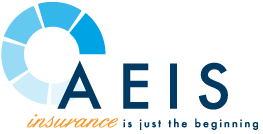Are Supplemental Accident Insurance Payouts Taxable? | California Benefit Advisors
Most health insurance plans cover emergency treatment, hospital stays and medical exams. If you are injured in an accident, your health insurance plan might not pay for all the incurred medical expenses. Supplemental accident insurance coverage pays cash benefits for illnesses or injuries caused by an accident, including fractures and physical therapy. The coverage is designed to help alleviate the burden of unexpected costs. Depending on how the policy is paid, the payouts may be classified as taxable income.
How it Works
Accident insurance coverage generally covers death or injuries caused by accidents on or off the job. There are a variety of coverage options available. Some employers offer the accidental coverage as a voluntary supplemental plan. You can also purchase private accident insurance to protect yourself if the coverage is not offered through your employer.
Self-Paid Plans
According to the IRS, if you paid the premiums on an accident or health insurance policy, the benefits are not taxable. Payouts from an insurance policy taken out through the employer are not taxed if you paid the premiums with after-tax dollars. If you pay the premiums of an accident insurance plan through a cafeteria plan, the premium was not included as taxable income and is considered paid by the employer and therefore the benefits are taxable.
Employer-Paid Plans
Accidental insurance payouts are taxable if the employer paid for the insurance plan. If you paid for an accidental insurance plan through the employer using pre-tax dollars, your benefits are taxable income. Any benefits received from your employer while injured are considered salary or wages and taxable as ordinary income. Additional taxable disability benefits include income from a welfare fund, state sickness or disability fund and association of employers or employees.
Withholding and Reporting
Report any taxable insurance payouts as wages, salaries, tips, etc., on your taxes. If you are suffering a long-term disability and receive taxable benefits, avoid a hefty tax bill by submitting a Form W-4S, Request for Federal Income Tax Withholding From Sick Pay, to the insurance company.
By Jeannine Mancini, Originally Published By LiveStrong



